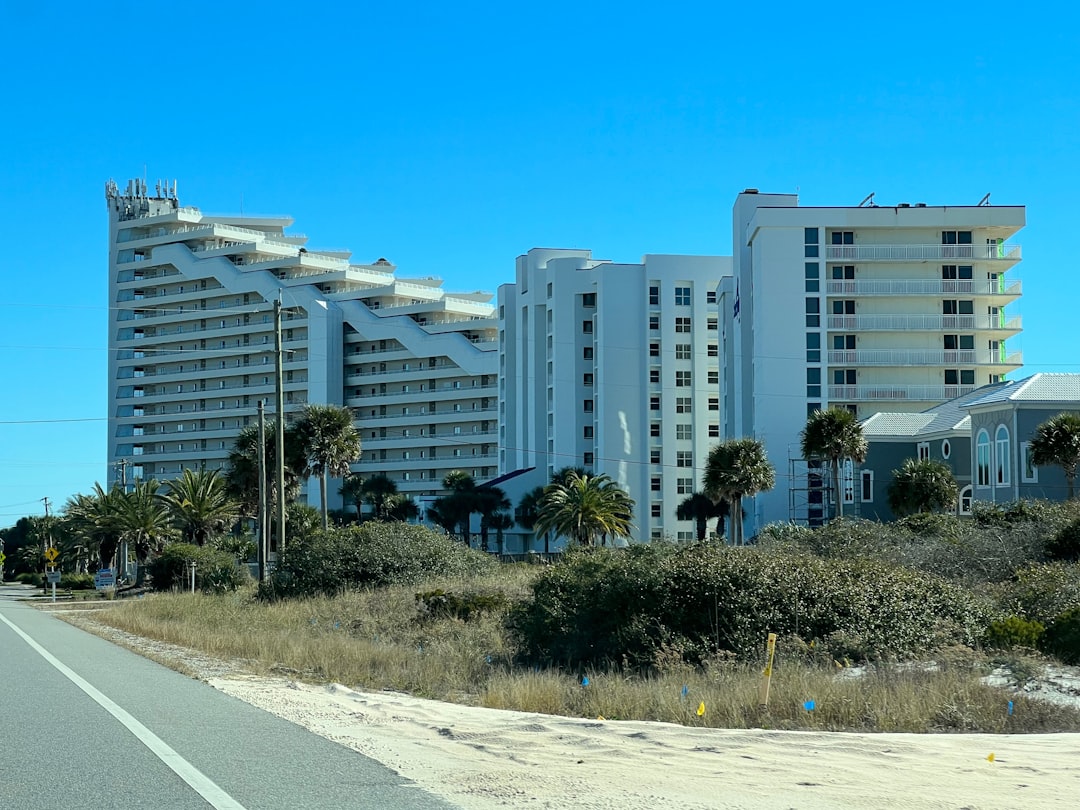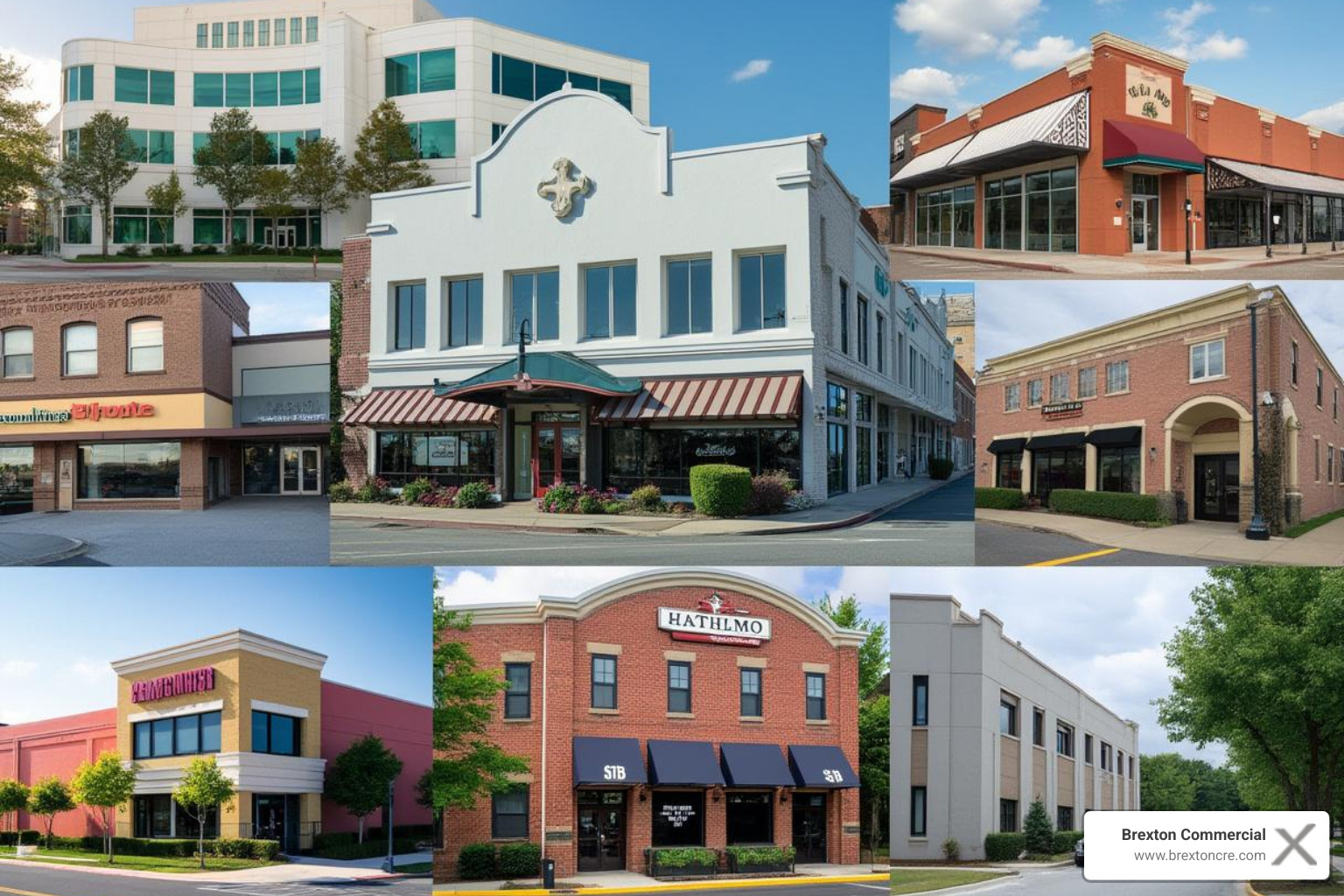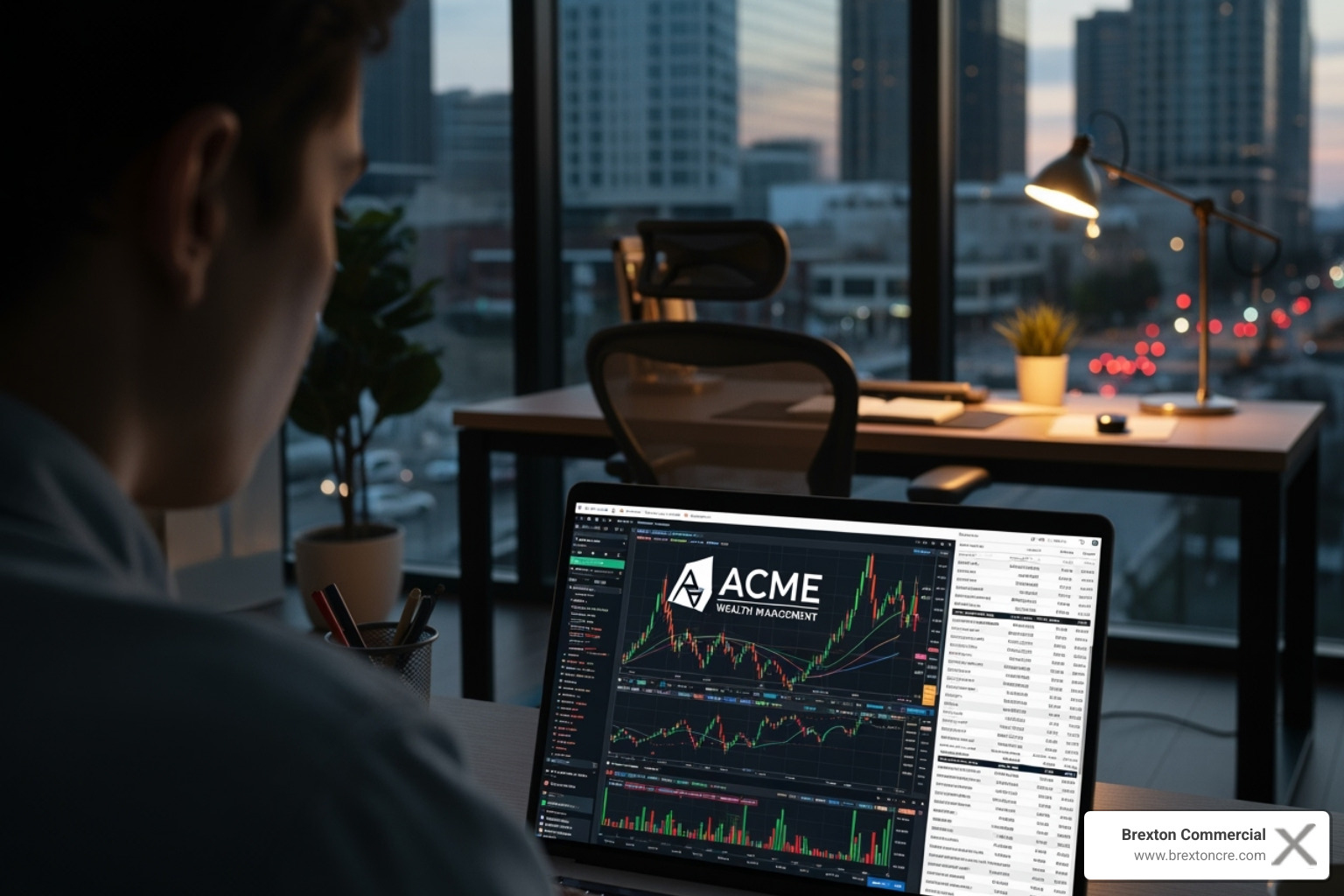DC industrial real estate is a dynamic and crucial segment of the property market, offering lucrative investment opportunities for those looking to capitalize on the region's strategic location and robust economic landscape. For business owners in the Mid-Atlantic region, understanding the importance of DC industrial real estate can be the key to maximizing investment returns and navigating complex market transactions.
- Key Highlights:
- Strategic Location: Proximity to government and private activities makes Washington DC an attractive industrial hub.
- Economic Stability: A strong economic foundation with consistent demand for industrial spaces.
- Investment Potential: Opportunities for growth, fueled by government investments and private sector expansion.
The landscape of DC industrial real estate is evolving, with growing interest driven by its prime location and stable market conditions. Industrial spaces near Washington, D.C., serve as crucial nodes for business operations, distribution, and manufacturing, benefiting from the city's economic activities and infrastructure support. This makes them highly attractive for businesses seeking reliable, high-yield investment options.
In the world of commercial real estate, Brexton Commercial is positioned to offer strategic insights and personalized services, aiding businesses to tap into untapped potential in the DC industrial sector.

DC industrial real estate terms explained:- commercial real estate DC- commercial real estate for sale dc
Understanding DC Industrial Real Estate
DC industrial real estate plays a vital role in the broader commercial property landscape of Washington, D.C. This sector includes properties used for manufacturing, storage, distribution, and other industrial activities that support both local and national economies.
The Essence of Industrial Property
Industrial properties in Washington, D.C., are designed to facilitate the production and movement of goods. These spaces are crucial for businesses that require large-scale operations, such as manufacturing plants or distribution centers. Typically, industrial real estate encompasses:
- Manufacturing Facilities: Spaces where products are assembled or produced.
- Storage and Distribution Centers: Locations for warehousing goods and logistics operations.
- Flex Space: Versatile properties that can be adapted for various uses, including office and industrial functions.
The Strategic Importance of DC Commercial Real Estate
Washington, D.C.'s industrial real estate market benefits from its strategic location. The city's proximity to major government and private sector activities improves its appeal as an industrial hub. This positioning supports a steady demand for industrial properties, ensuring a reliable return on investment.
The DC commercial real estate market is further bolstered by its economic stability. With a mix of government jobs and a thriving private sector, the region offers a fertile ground for industrial investments. The consistent demand for industrial spaces makes it a resilient segment of the real estate market.
Navigating the DC Industrial Property Market
Investors in DC industrial properties must consider various factors, including location, property type, and market trends. The city's infrastructure and connectivity are major advantages, supporting efficient business operations. Additionally, understanding zoning regulations and market dynamics is crucial for making informed investment decisions.
In summary, DC industrial real estate is a robust and promising sector, offering lucrative opportunities for investors and businesses. Its strategic location, economic support, and diverse property types make it an attractive choice for those looking to expand their operations or portfolios in the nation's capital.

Types of Industrial Real Estate in DC
In Washington, D.C., industrial real estate comes in various forms, each serving unique business needs. Let's explore the main types that make up this dynamic sector.
Manufacturing Facilities
Manufacturing facilities are where products are made or assembled. These buildings are custom for heavy machinery and large-scale production lines. They often need robust infrastructure to support manufacturing processes, from assembly to packaging.
Storage and Distribution Centers
Storage and distribution centers are vital for logistics. These facilities store goods before they are shipped to their final destinations. With the rise of e-commerce, the demand for these centers has grown. They are strategically located to ensure quick and efficient distribution across the region.
Flex Space
Flex space is a versatile type of industrial real estate. These properties can be adapted to serve multiple functions, such as office space, light manufacturing, or storage. Flex spaces are popular because they offer businesses the ability to adjust the space to meet changing needs without relocating.
Eight Types of Industrial Buildings
In addition to the above, there are eight types of industrial buildings commonly found in the D.C. area:
- Heavy Manufacturing: Facilities equipped for large-scale production and heavy machinery.
- Light Assembly: Buildings used for assembling products rather than manufacturing from raw materials.
- Bulk Warehouse: Large spaces for storing vast quantities of goods.
- Cold Storage: Facilities designed for storing perishable items at low temperatures.
- Data Centers: Buildings that house servers and IT equipment for data storage and processing.
- R&D Facilities: Spaces focused on research and development activities.
- Showrooms: Areas that combine retail and warehouse functions, often used for displaying products.
- Tech Space: Specialized buildings equipped for technology and innovation sectors.
Each of these types serves a distinct purpose, catering to the diverse needs of businesses in Washington, D.C. Understanding the variety of industrial real estate options is crucial for investors and businesses looking to capitalize on the opportunities in this vibrant market.
Whether you're interested in manufacturing, storage and distribution, or flex space, the D.C. industrial real estate market offers a breadth of options to explore.
Key Factors Driving the DC Industrial Real Estate Market
The DC industrial real estate market is shaped by several key factors that make it a unique and attractive investment landscape. Understanding these elements can help investors make informed decisions.
Government Jobs
Washington, D.C. is the heart of the U.S. government, and this creates a stable economic foundation. The presence of numerous federal agencies and government contractors ensures a consistent demand for industrial space. Government jobs provide a reliable source of high-paying employment, which supports the local economy and boosts demand for industrial properties.
Private-Sector Growth
Beyond government influence, the private sector in D.C. is thriving. The city has become a hub for technology, healthcare, and professional services. This growth in diverse industries fuels the need for industrial properties, such as flex spaces and data centers, to support business operations. The private sector's expansion is a critical driver of the industrial real estate market, creating opportunities for investors.
Market Support
The D.C. industrial real estate market benefits from robust market support. Local policies and incentives, such as tax abatements for property conversions, encourage investment and development. These initiatives aim to address challenges like high vacancy rates while promoting economic vitality. Such market support mechanisms make D.C. an appealing destination for real estate investment.
Reliable High-Paying Jobs
The combination of government and private-sector jobs in Washington, D.C. offers a reliable pool of high-paying employment opportunities. This economic stability attracts businesses looking for a skilled workforce and reinforces the demand for industrial spaces. As a result, the industrial real estate market remains resilient, even in the face of broader economic fluctuations.
Washington, D.C.'s unique blend of government presence, private-sector dynamism, and strong market support creates a fertile ground for industrial real estate investment. Understanding these key factors can help investors steer the market and capitalize on its potential.
Steps to Investing in DC Industrial Real Estate
Investing in DC industrial real estate can be a rewarding journey if approached with the right strategies and knowledge. Here, we outline some essential steps to help you steer this promising market.
Investment Strategies
Start with Research: Understand the local market trends and key factors driving demand. The thriving private sector and government presence in D.C. create a stable foundation for industrial real estate investments.
Diversify Your Portfolio: Consider different types of industrial properties such as manufacturing, storage, and flex spaces. Each type offers unique benefits and can help balance your investment portfolio.
Leverage Local Expertise: Partner with experienced real estate professionals who know the D.C. market well. Their insights can guide you in making informed investment decisions.
Public and Private Real Estate Equity
Investing in real estate equity involves purchasing shares in properties or real estate companies. This can be done through:
Public Real Estate Investment Trusts (REITs): These are traded on major stock exchanges and offer a way to invest in real estate without directly owning property. They provide liquidity and diversification.
Private Equity: Involves investing in private real estate funds or directly into properties. This option often requires more capital but can offer higher returns and greater control over investments.
Public and Private Real Estate Debt
Real estate debt investments involve lending money to property owners or developers. Here's how you can get involved:
Public Debt: Invest in mortgage-backed securities or bonds issued by real estate companies. These are typically lower risk and provide regular income through interest payments.
Private Debt: Directly lend to property developers or owners. This can offer higher returns but comes with increased risk and requires thorough due diligence.
Infrastructure Considerations
Infrastructure plays a crucial role in the success of industrial real estate investments. Here are key aspects to consider:
Transportation Access: Properties with easy access to major highways, ports, and public transportation are more attractive to tenants.
Utilities and Services: Ensure that properties have reliable access to essential services like electricity, water, and internet. These are vital for industrial operations.
Future Developments: Keep an eye on planned infrastructure projects in the area. New developments can increase property values and demand for industrial spaces.
By following these steps and leveraging the unique opportunities in the D.C. industrial real estate market, investors can position themselves for success. This dynamic market offers a blend of stability and growth potential, making it an appealing choice for savvy investors.
Benefits of Investing in DC Industrial Real Estate
Investing in DC industrial real estate offers several compelling benefits that make it an attractive option for investors. Let's take a closer look at why this market is so promising.
High Demand
The demand for industrial properties in Washington, D.C., is consistently high. This is largely due to the area's robust economy, which is supported by a mix of government and private-sector jobs. Industrial spaces, such as warehouses and distribution centers, are essential for supporting these economic activities. As businesses continue to grow and expand, the need for industrial real estate remains strong.
Strategic Location
Washington, D.C., boasts a strategic location that improves its appeal as an industrial hub. It sits at the heart of the East Coast, providing easy access to major cities like New York and Philadelphia. This central location makes it ideal for businesses involved in logistics and distribution. Properties with good transportation access—like those near major highways and ports—are particularly valuable.

Economic Stability
The economic stability of Washington, D.C., offers a reassuring backdrop for industrial real estate investments. The city benefits from a diverse economy anchored by the federal government, which provides reliable high-paying jobs. This stability helps to protect the real estate market from drastic downturns, making it a safer investment compared to more volatile markets.
Tax Incentives
Investors in D.C. industrial real estate can also take advantage of various tax incentives. Programs like the new tax abatement initiative encourage the conversion of commercial spaces to residential use, helping to address vacancies and revitalize downtown areas. These incentives not only reduce costs for property owners but also contribute to the overall vibrancy of the city.

By understanding these benefits, investors can make informed decisions and capitalize on the opportunities within the D.C. industrial real estate market. The combination of high demand, strategic location, economic stability, and tax incentives creates a fertile ground for investment success.
Challenges and Risks in DC Industrial Real Estate
Investing in DC industrial real estate is not without its challenges. Understanding these risks can help you make smarter decisions.
Vacancy Rates
One of the biggest concerns is vacancy rates. As highlighted in recent studies, Washington, D.C., has seen a significant increase in office vacancies, with rates reaching 21.2% by the end of 2023. Although industrial properties are generally in high demand, fluctuations in the economy or shifts in business needs can lead to higher vacancy rates, impacting rental income.
Market Fluctuations
Market fluctuations are another risk. The commercial real estate market is sensitive to economic changes. As noted in recent reports, high interest rates have increased delinquency rates in the sector. If interest rates or economic conditions shift, property values can decrease, affecting your investment's profitability.
Economic Downturns
Economic downturns pose a significant threat as well. While D.C.'s economy is relatively stable, no market is immune to downturns. The commercial real estate sector has faced challenges like rising defaults and falling valuations due to the Federal Reserve's policies. If the economy slows, these issues can become more pronounced, potentially leading to financial losses for investors.
Commercial Mortgages
Finally, commercial mortgages can be tricky. Securing financing for industrial properties often involves navigating complex loan terms and interest rates. As many U.S. CRE mortgages mature this year, investors must be prepared to manage refinancing risks. Understanding the intricacies of commercial loans is crucial to avoid financial pitfalls.
By recognizing these challenges and risks, you can better prepare and protect your investments in DC industrial real estate. In the next section, we'll address some frequently asked questions to further clarify this investment landscape.
Frequently Asked Questions about DC Industrial Real Estate
What does industrial mean in real estate?
In real estate, industrial refers to properties where goods are made, stored, or shipped. These properties are essential for manufacturing, storage, and distribution activities. Industrial real estate in DC includes various property types, such as warehouses, factories, and flex spaces. Flex spaces are versatile buildings that combine office and industrial use, offering adaptability for different business needs.
What does D.C. stand for in real estate?
In the context of real estate, D.C. can refer to Defined Contribution plans. These are investment strategies that involve public and private real estate equity and debt. Investors can diversify their portfolios by participating in these plans, which might include infrastructure investments. Understanding these strategies is crucial for navigating the complex landscape of real estate investment in Washington, D.C.
Is Washington DC a good place to be a real estate agent?
Washington DC is indeed a fertile ground for a real estate career. The city boasts a thriving private sector and high-paying government jobs, which provide a stable economic base. This stability attracts businesses and individuals, creating demand for real estate services. As a real estate agent in D.C., you can tap into this dynamic market, offering opportunities for growth and success.
Conclusion
Investing in DC industrial real estate can be a rewarding journey, and at Brexton Commercial, we are here to guide you every step of the way. Our personalized approach sets us apart. We believe in understanding each client's unique needs and crafting custom solutions just for them.
We specialize in exclusive brokerage representation, offering expert advice and strategic insights to help you achieve your real estate goals. Whether you're looking to buy, sell, or lease industrial properties in Washington, D.C., our team of experienced professionals is ready to assist you.
Our consulting services provide comprehensive market evaluations and financial analyses, ensuring you make informed decisions. We also offer investment advisory services, guiding you through complex investment strategies to maximize your returns.
At Brexton Commercial, we pride ourselves on our hands-on approach and commitment to building long-term relationships with our clients. Our deep understanding of the Washington D.C. market dynamics enables us to offer valuable insights and opportunities custom to your needs.
Ready to explore the potential of DC industrial real estate? Contact us today to learn how our expertise can help you succeed in this thriving market.




